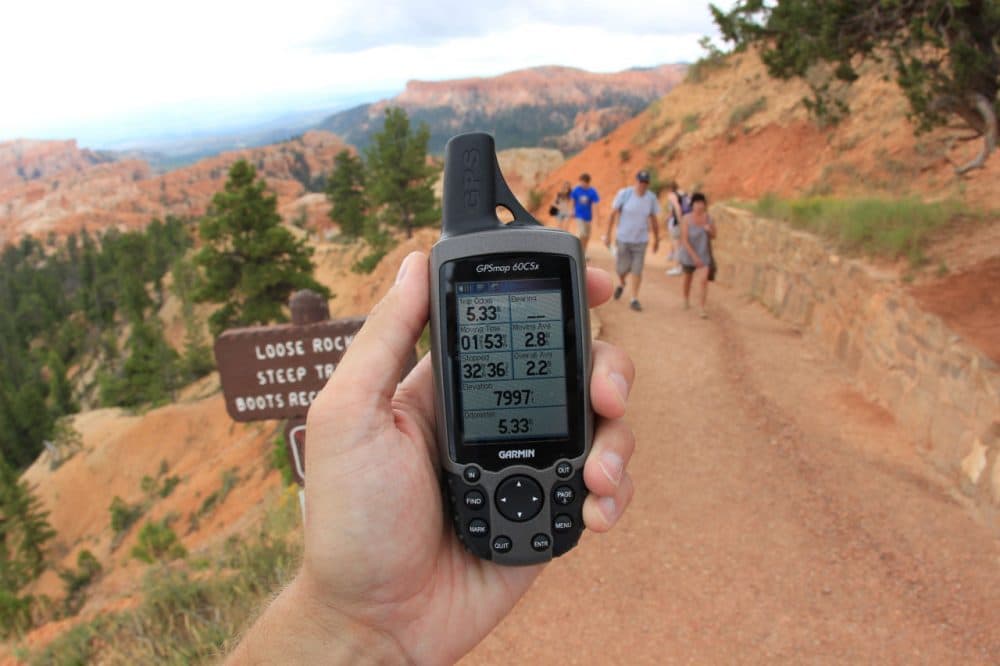Advertisement
How Much Should Hikers Rely On GPS, Or Smartphones?
Resume
GPS and emergency beacons are becoming more popular on the trail. But experienced hikers say people on long hikes should know how to read a map and use a compass in case the location technology they’ve brought along fails.
Outside Magazine's Axie Navas evaluates the technology with Here & Now's Robin Young, and they discuss hiker Geraldine Largay, the Tennessee woman who got lost on the Appalachian Trail in 2013. The official file on her disappearance and death, released last month, indicates that she did not know how to use a compass and was out of range of cellphone towers when she tried to text for help.
Interview Highlights: Axie Navas
On how does a personal locator works
"It'll send out a message about where your location is. some of them have two-way communication so you can send both and receive messages. And one example that we look at, SPOT is a good example. It's called the SPOT Gen3 tracker. Basically, you would have it on you and you would press a button if you want to send out your location, and it would then use satellites to send a pre-programmed message to your contacts."
On the advantages and drawbacks of cellphone GPS technology
"The GPS in your cell phone is actually pretty sophisticated, although we definitely don't recommend relying on your phone when you go out into the back country. One, because of lack of service, and your phone is not built to handle the elements like that. If you're going on a short hike, sure, that GPS will work just fine. But if you're trying to take on the Appalachian Trail, there are a lot of pitfalls. The battery life isn't great, you get out of cell service pretty quickly. It that encourages people to hike in maybe places where they shouldn't be."
On the benefits of hiking without technology
"You want to get out and you want to have the digital detox and it's not about having a lot of technology. I think that said, there are some tools that you can use in emergency situations or in case you get in an emergency situation that might save your life. You can't rely on it and you have to know how to use it, and you have to have back-up plans and you have to realize that there might be some failures. But as we see it it's just another tool in your arsenal to pack."
On the importance of hiking with a compass and map
"It's kind of fail safe. If you know how to use it, you'll be able to navigate in the back country. If you're going for a short day hike, and you're going to be on set trails, you probably don't need a lot of map and compass knowledge. But if you're attempting a big thru hike, and you're going to be out there for a long time by yourself, that is a really great way to be self-reliant. It's just not going to fail in terms of navigation."
Guest
- Axie Navas, senior gear editor for Outside Magazine. She tweets @axie2020.
This segment aired on June 1, 2016.